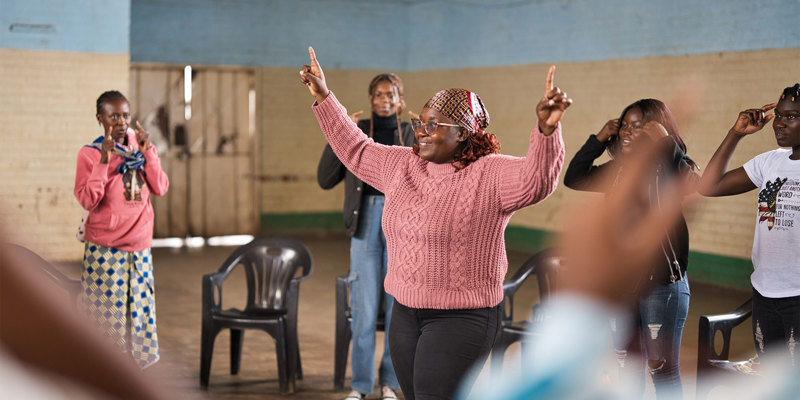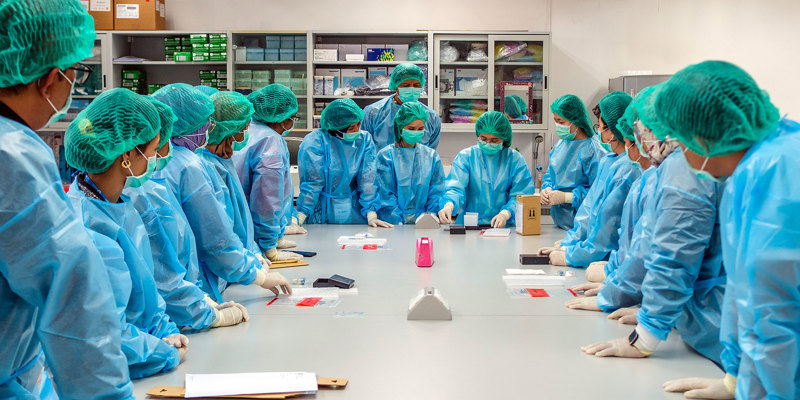The Global Fund Joins Partners in Committing to Address Large Shortfalls in Oxygen
21 June 2022
Today the Global Fund joined a total of five donor countries, multilateral organizations and foundations that announced examples of their collective contributions to address the large shortfalls in access to oxygen for patients, including those hospitalized with COVID-19, in low- and lower middle-income countries (LMICs) around the world.
Following its US$561 million investment in oxygen, related health products and support of pressure swing adsorption (PSA) plants, plus significant support for associated training, the Global Fund remains committed to supporting countries in their long-term oxygen needs, as part of its investments in strengthening health systems. The long-term ability of countries to source oxygen inexpensively and locally remains one of the key components of pandemic preparedness and a resilient and sustainable health system.
Even prior to COVID-19, access to medical oxygen was inadequate to meet the needs of health systems in most LMICs. In addition to COVID-19 patients, there is a vast patient population who also need oxygen therapy. This includes newborns in respiratory distress, children with pneumonia, sepsis, and/or congenital heart disease, adults with tuberculosis (TB), malaria, and/or HIV and AIDS, and/or respiratory conditions like chronic obstructive pulmonary disease, and patients requiring surgery.
Prior to the pandemic, much of the world took access to oxygen for granted – however, headlines reporting oxygen shortages, and their tragic consequences, have changed this. Access to oxygen has become a key plank of the COVID-19 pandemic response. Oxygen is an essential treatment for severe COVID-19 – 75% of people hospitalized can survive with oxygen therapy alone. Without oxygen, these patients cannot survive.
During the pandemic, donors around the world have mobilized more than US$800 million in grant financing to help LMICs avert oxygen shortages. These investments have already helped millions of patients and will be vital components of systems needed to respond to future health emergencies. But they are not enough. An additional US$1 billion is needed to prevent further oxygen shortages in LMICs in the next year alone. People sick with severe COVID-19 or other conditions must not be left to die simply due to a lack of oxygen in medical facilities.
Donors making announcements include the Global Fund, government of Germany, the Skoll Foundation, Unitaid, and the U.S. Agency for International Development.
This year, the Global Fund is launching its Seventh Replenishment campaign to raise at least US$18 billion to fight HIV, TB and malaria and build stronger systems for health, and thus reinforce pandemic preparedness. At least US$18 billion would save 20 million lives, cut the death rate from HIV, TB and malaria by 64% and strengthen systems for health. The Global Fund’s investments in systems for health – over US$1.5 billion a year – have helped build more inclusive, resilient and sustainable health systems and have accelerated progress toward the Sustainable Development Goal of ensuring everyone, everywhere, has access to the services they need for good health and well-being.







